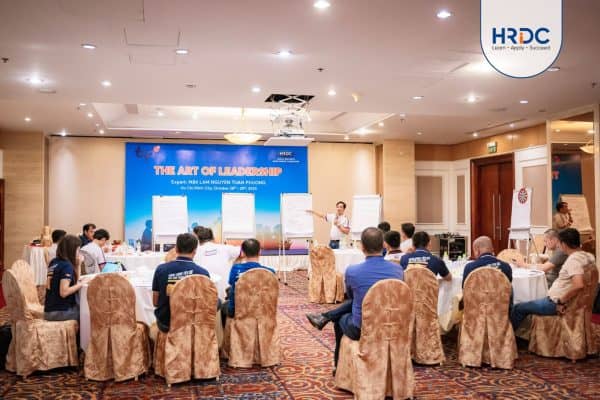Flexibility and adaptability are essential skills that bring benefits not only to individuals but also to organizations. For managers, employee flexibility is a critical factor in maintaining stable performance and ensuring that the organization can effectively adapt to changes in the business environment. Meanwhile, employees who demonstrate adaptability and flexibility can expand their opportunities for promotion and salary increases while earning recognition for their valuable contributions to the organization.
To evaluate these skills, employers often require employees to demonstrate their adaptability and flexibility through periodic situational assessments. These assessments, typically conducted every few years, measure how well employees align with changes in their roles and workplace environments. Additionally, they help determine employees’ ability to adjust and grow in response to organizational demands.
The types of flexibility and adaptability that employers may prefer
To demonstrate your adaptability and flexibility, focus on the following factors:
- Adjusting Planned Methods to Respond to New Information or Circumstances
The ability to modify your planned methods based on new information or changing circumstances is a clear indicator of flexibility. This requires keen awareness to identify and evaluate new factors, as well as skills to apply innovative solutions. For instance, when a significant project demands sudden changes in its scope, showcasing your ability to update plans and approaches effectively can highlight your adaptability.
- Quickly Adapting to New Methods and Approaches
When workplace environments or technologies evolve, swift adaptation is essential to maintain work efficiency. Demonstrating your capability to seamlessly adopt and implement new methods without disruption is critical. For example, independently researching, familiarizing yourself with, and applying new tools or processes while proving their effectiveness is a strong indicator of flexibility.
- Proposing New Processes, Strategies, and Techniques
Flexibility isn’t just about adapting—it also involves anticipating and driving change. Proposing new processes, strategies, or techniques and providing clear evidence of why they are the best approaches is crucial. This involves analyzing current methods, identifying weaknesses, and presenting well-justified alternatives that can improve performance.
- Presenting Ways to Enhance Efficiency and Effectiveness
A vital aspect of flexibility is the ability to boost work efficiency and performance through changes or improvements. You should be able to analyze and evaluate the impact of changes on work processes and propose solutions to optimize workflow. Providing examples of improved work efficiency after implementing changes is key to showcasing your adaptability.
- Willingness to Learn and Adapt to New Methods, Environments, and Skills
The ability to continuously learn and develop is crucial for maintaining flexibility. Offering evidence of how you have self-learned and adapted to new skills, technologies, or work environments demonstrates your readiness to embrace change. This not only keeps you competitive but also proves your potential to contribute to the organization’s growth.
- Reprioritizing to Meet Changing Demands
Flexibility also involves the ability to adjust work priorities to align with new needs and situations. You should demonstrate your capacity to analyze situations and make decisions to reprioritize tasks in a way that ensures the success of projects or assignments. Being quick to recognize and respond to changes in priorities is a hallmark of flexibility and adaptability.
- Recovering from Failures and Maintaining a Positive Attitude
In the workplace, setbacks are inevitable. The ability to quickly recover and maintain a positive outlook after failures demonstrates not only flexibility but also resilience and work ethic. You should highlight your capacity to learn from failures, adjust strategies, and continue working with a constructive and determined mindset.
- Encouraging Colleagues to Embrace Change Positively
Flexibility extends beyond yourself and includes supporting and encouraging colleagues to adapt to new changes. Taking on the role of a motivator or guide to help colleagues embrace changes positively is crucial. This could involve providing support, guidance, or training to ensure that everyone in the team adapts successfully.
- Taking on Roles Outside Core Duties to Support Business Goals
Flexibility also means being willing to take on roles or tasks outside your core responsibilities. Being ready to contribute to additional projects or assignments to support colleagues and achieve organizational goals demonstrates adaptability. This not only reflects flexibility but also highlights teamwork and commitment to shared success.
- Relocating or Working Remotely
Finally, the ability to relocate or work remotely when necessary is an important aspect of demonstrating flexibility. You should show that you can meet work requirements involving relocation or remote work without compromising efficiency or quality.
These factors not only help you stand out in your current workplace but also open doors for career growth and enhance your value in the eyes of employers. Flexibility and adaptability are essential skills for maintaining success in a constantly changing work environment.
Related articles: Effective Work Management Skills Course – HRDC
COURSE ON ADAPTABILITY AND HANDLING HIGH PRESSURE: https://www.learntogrow.com.vn/ky-nang-thich-ung–chiu-ap-luc















